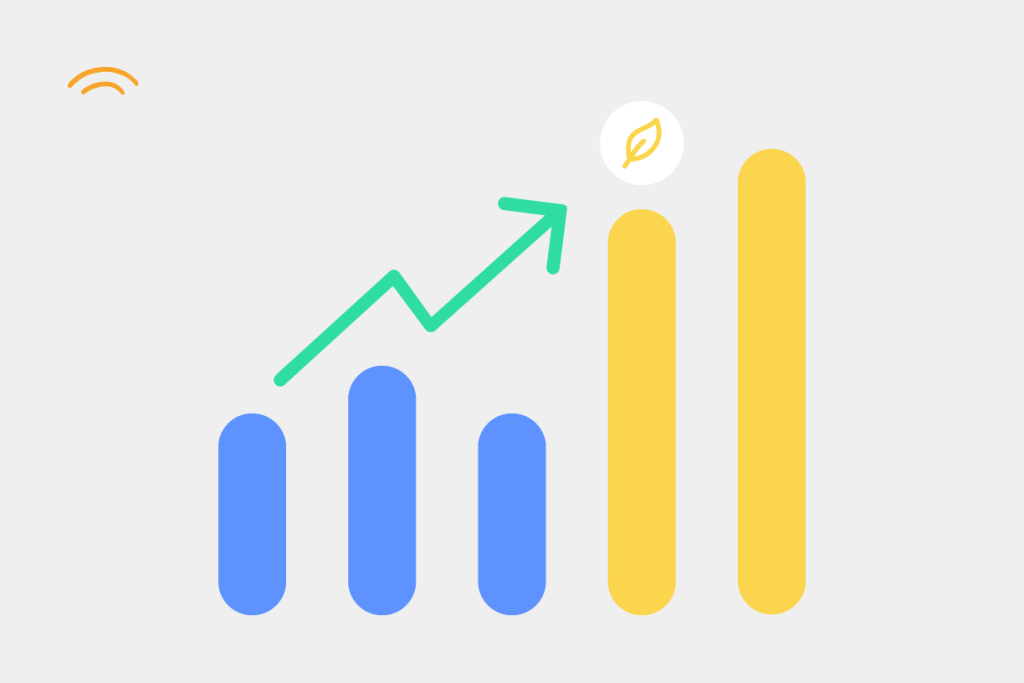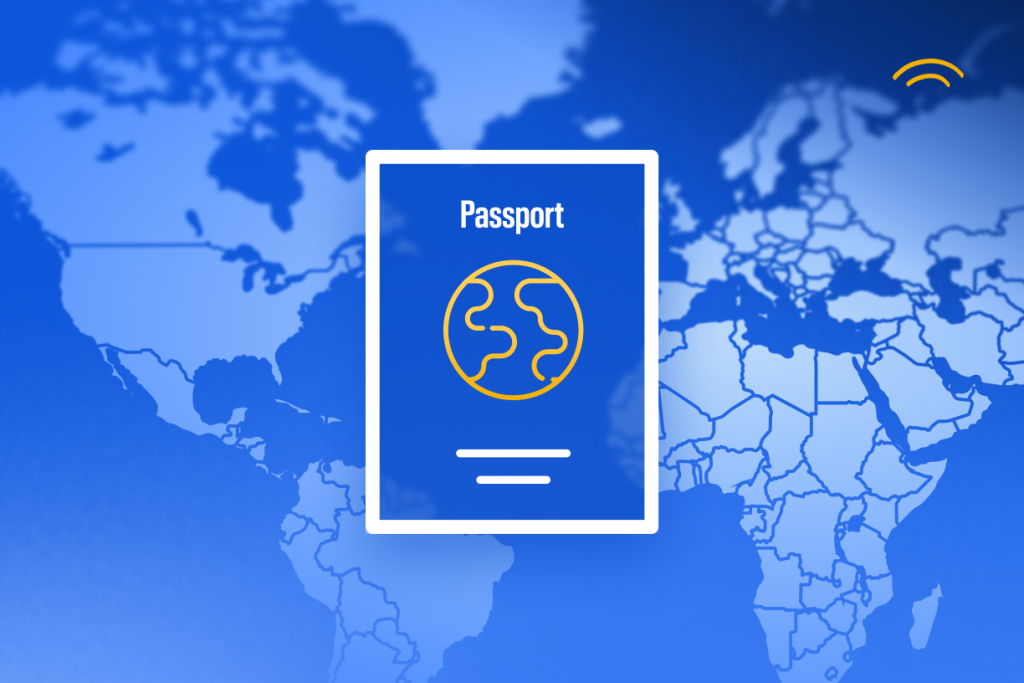
At Dayrize, we take pride in our commitment to sustainability and transparency. Our methodologies and tools for assessing the environmental impact of products are backed by rigorous standards and expert validation. A key figure behind this is our Chief Scientist, Gaylord Booto, whose extensive expertise in Lifecycle Assessments (LCA) ensures that our processes are among the most credible in the industry. This week, we caught up with Gaylord to give you an insight into his expertise, experience and thoughts on future innovations.
1. Welcome Gaylord, thanks so much for taking the time to catch up with us! Please tell us a little bit about your educational background, qualifications and career to date.
I have an engineering (i.e., applied science) background, with a Bachelor of Engineering (BEng) in Aeronautical (Aerospace) Engineering (from ISTA, Kinshasa, DR Congo, 2005) and Bachelor of Engineering (BEng) in Environmental Engineering (from DUTH, Greece, 2014). After that, I took a research path with a MSc. in Environmental Engineering, specialised in Energy Production (System Design) and Air Pollution Control (Industrial Processes). In my MSc., I designed a trigeneration process (producing heat, electricity and hydrogen) from a reversed solid oxide fuel cell(SOFC) – namely solid oxide electrolysis cell, operating at atmospheric pressure. After my MSc., I took a full research journey and conducted a PhD., in the field of Civil, Transport & Environmental Engineering, where I specialised in Quantitative Sustainability (Industrial Ecology) applying Life Cycle Thinking approach into large infrastructure projects. I develop models and methods to optimise sustainability performance of any type of engineering works (including industrial processes, systems, infrastructure, and services).
When it comes to my career, my journey, just like anybody else, is a slightly different one. I have held a number of positions including Air Traffic Controller (International Airport of Kinshasa N’DJILI – FZAA), lecturer (ISTA Kinshasa), Regional Lead (Global Unification Eastern Africa, Humanitarian), Researcher (Different Labs, including BTECO Lab, and Thermal Engineering Lab at DUTH), Research Engineer (NTNU and Norwegian Road Authority – STATENS VEGVESEN), PhD Researcher, LCA Research Analyst (The Nuclear Center of Energy), Senior Sustainability Expert (VARIG), and Senior Research Scientist (NORSUS, NILU). In parallel with some of the positions I have held, I have also been involved in Teaching of sustainability subjects (Sustainable Mobility, Sustainable Infrastructure, LCA of transport systems, etc.) at NTNU Trondheim, and have been supporting students navigating their research path (MSc., PhD., Post-doc). In addition to this, I have been providing consulting services to support businesses integrating sustainability dimensions into their workflows. Before joining Dayrize, I held the position as Sustainability Strategist (Principal Consulting Sustainability Innovation) at AWS EMEA and North America, supporting customers using digital technology to accelerate their sustainability outcomes (Digitize-to-Decarbonize, automated ESG reporting & Disclosure, automated PCF, etc.). My Journey at AWS ended as part of the World Wide Specialty Organization (WWSO) Team, supporting BD & GTM activities in EMEA and APJ.
2. Can you talk us through which committees and boards you are currently a member of?
As a certified verifier, registered at EPD (Environmental Product Declaration) Norway, I assess whether a declaration is suitable for publication based on the process used to create it, which incorporates Life Cycle Assessment (LCA) methodology. I also verify and validate Software Tools designed to automatically generate EPDs. This means checking the compliance of the Tool with the LCA standards and the specific Product Category Rules (PCRs). Here I sit on the committee and we define the policy and align our system to EPD World.
In addition, I am a member of the Panel of Experts in The Norwegian Research Council for evaluating Research Project Proposals in the field of LCA and Sustainability.
- EPD Norway (for both EPDs and EPD tools development, verification and validation)
- Norwegian Research Council, NFR (research proposal evaluation and ranking)
- Guest Editor in Frontiers in Sustainability: Circular Economy
- Member of the MIT Energy Group
3. What motivated you to pursue a career in science and academia, specializing in sustainability?
Growing up in the DR Congo, I can modestly say that I have had few experiences that not everyone would love to have, as humans. But I know experience is always unique and I have strong respect for everyone’s experience in life. For my case, what I witnessed developed in me the strong desire to be the one who can help others in my community. As access to education was and still is problematic in my home country, I thought it was important to be able to contribute in educating the future generations and maybe make education accessible to all – a big, but a great, dream!
Now, why sustainability? Well, my simple understanding of the concept “Sustainability” is a better quality of life for ALL! I am convinced that there is nothing better than making this world a better place.
4. What initially drew you to Dayrize, and what are some of your responsibilities here?
Dayrize’s mission for bringing consumption and production within the bearing capacity of our natural environment and societies, is not only unique but it is also very specific to sustainability. In my opinion, sustainability is largely connected to our lifestyle which is the main driver in our production and consumption system. So, supporting sustainable production of consumer goods and encouraging more responsible consumption patterns, to me, seems to be the correct path towards a more liveable world, and Dayrize is contributing to that.
At Dayrize, I am part of the Science Team which I have the honour to co-lead with a team of highly qualified scientists (with a great sense of detail and strong technological understanding). As a Science Team, our main responsibility is to do SCIENCE! Well it can be broken down into activities (such as development of new concepts or methods, aligning with the latest science, integration of new science into our core methodology, method implications, database development, maintenance, etc.), but it is mostly about doing SCIENCE on a daily basis. Our role is to make sure the mind behind our technology is scientifically sound, up-to-date, and serves the purpose of our customers in a meaningful way. This can be summarised as making sure each component of our technology is built according to the science to allow for bringing production and consumption with planetary and societal boundaries.
5. Can you give us an overview of Dayrize’s scientific methodology, which serves as the foundation for our impact assessments?
Dayrize assesses the sustainability performance of consumer goods, taking a lifecycle thinking approach — from cradle-to-customer gate — at product level. In our methodology, sustainability is analysed in depth, at the highest level of granularity that one can imagine for a produced good, using five dimensions encompassing;
- Climate – addressing product ability to amplify or mitigate negative climate outcomes.
- Circularity – focusing on the ability of a given product to contribute to responsible management of natural resources.
- Livelihood & Wellbeing – accounting for social aspects linked to producing a good along its value chain.
- Natural Ecosystems – quantifying impacts induced by producing a good to the natural sinks and sources
- Health – addressing harmfulness to human health of both a product, its manufacturing and related upstream processes. The final outcome is a numerical score, between 1 and 100, summarising the sustainability performance of a product taking into account all five dimensions mentioned above. Each dimension has an associated score (also between 1 and 100) which can be used to drive improvement decisions, considering the subdimension’s components.
Dayrize methodology is aligned with international standards (ISO 14040-44, ISO 14067), worldly recognised guidelines and protocols (GHG Protocol, UNEP protocols, Ellen MacArthur Foundation, etc.) and the latest scientific developments. The methodology is subject to constant improvement, and undergoes a two-stream review process before any new release — managed by a third party actor — including a double-blind academic review (critical) conducted by independent academics (selected among the best, each within their field of expertise) and a verification-validation process conducted by a third party accredited organisation (e.g., SGS).
6. What would you say is the future of environmental and social impact reporting?
As always, it is never easy to predict the future. However, observing the trend so far in the ESG landscape, it seems like we have clear indications about the key role that digital technology will have to play in this space.
The future of ESG reporting and disclosure will include, among other key steps, leveraging the potential of Technology (in particular Digital Technologies) to get from where we are today to where we must be in the future. Central to this will be the ability to make well informed decisions supported by a detailed analysis driven by real data. Therefore, performing analysis at product level will be the key to a more sustainable world.
7. Final, but important, question for you Gaylord – what advice would you give a business just starting out on their sustainability journey?
Sustainability is a Journey and the best day to start was many decades ago. The next best day to start is today and the best time to start is right now.
So, do not wait, start right now. Most importantly, seek for HELP. We are here to support you!
To learn more about the features and the team behind Dayrize, subscribe to our updates below or follow us on LinkedIn.

